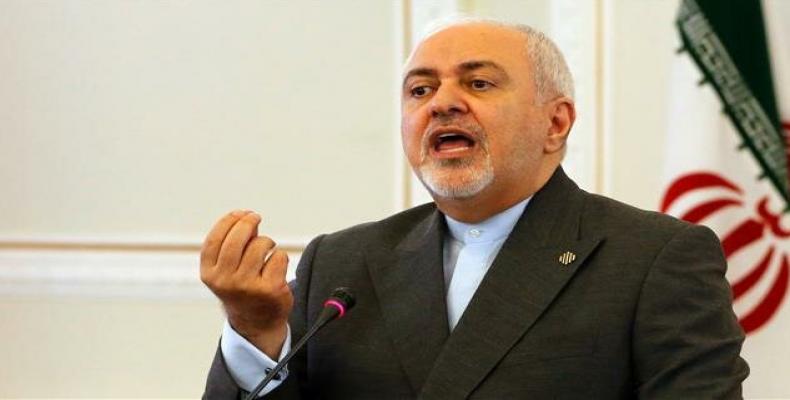
Tehran, February 11 (RHC)-- Tehran has once again reiterated that time is running out for Washington to adopt a new approach towards Iran, stressing that it is up to the new U.S. administration to learn a lesson from the failure of the so-called maximum pressure policy.
Iranian Foreign Minister Mohammad Javad Zarif noted that over the past four decades, seven successive U.S. administrations gambled that they would force Iran into submission but they all failed. Zarif made the remarks in a video message published on his Twitter page on the occasion of the 42nd anniversary of the victory of the Islamic Revolution that toppled the U.S.-backed Pahlavi regime.
Referring to the former U.S. president’s “maximum pressure” policy vis-à-vis Iran, he said: “Donald Trump was betting on the myth that Iran is a nation that can be forced to choose between collapse and submission.”
“We have all seen the outcome of that bet. But Trump was not the first nor the second, but in fact the seventh consecutive U.S. president who has made and lost the exact same wager,” he added. The top Iranian diplomat said that with the new U.S. administration in Washington, there was an opportunity for Washington “to try a new approach, but the current window is flitting.”
Zarif said that under a law approved by the Iranian parliament, the government is soon to "take further remedial action" on "enhancement" of the country's nuclear program and "a reduction in our cooperation with IAEA (International Atomic Energy Agency) the inspectors" in response to the “dismal failure” of the US and the Europeans to honor their obligations under the 2015 Iran nuclear deal, officially dubbed the Joint Comprehensive Plan of Action (JCPOA).
“It can be averted only if the United States decides to learn from Trump's maximum failure, rather lean on it,” the Iranian foreign minister noted.
Much to the dismay of the international community, Trump left the JCPOA in 2018 and unleashed the toughest ever sanctions against Iran in total disregard for international law. He also prodded other countries into cutting trade with Tehran or face Washington’s punitive measures.
Iran waited for an entire year for the remaining European parties to fulfill their end of the bargain. However, as they failed to safeguard Iran's interests, Tehran began in May 2019 to scale back its JCPOA commitments under Articles 26 and 36 of the accord covering Tehran’s legal rights.
Trump claimed time and again in vain that his administration’s maximum pressure policy would force Iran to surrender. His successor, Joe Biden, who was vice president when the JCPOA was signed, criticized Trump’s withdrawal from the deal and said during his presidential campaign that he hoped to return his country to the deal. But since taking office in January, his administration has taken a harder line, demanding that Tehran first resume its "compliance."
Iran says the U.S. needs to take the first step as it was the party that quit the deal, stressing that Washington should lift all the sanctions and not just verbally on paper before Tehran reverses its countermeasures.

